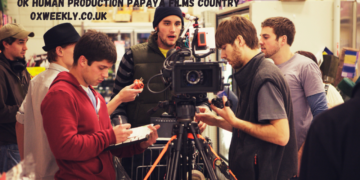Introduction
Paul Waugh is a distinguished name in journalism and political commentary, recognized for his incisive analysis and thoughtful reporting. With a career spanning decades, Waugh has established himself as a trusted voice in political journalism, offering nuanced perspectives on the complex dynamics of modern politics. This article delves into Paul Waugh’s career, his influence on political discourse, and his enduring legacy in the field of journalism.
Early Life and Education
Paul Waugh’s journey into the world of journalism began with a solid educational foundation. Although specific details about his early life remain under wraps, his academic background and passion for writing were instrumental in shaping his future. Waugh demonstrated an early interest in current affairs, which he later transformed into a prolific career in political journalism.
Entry into Journalism
Waugh’s initial steps in journalism were marked by a commitment to uncovering the truth and delivering insightful commentary. He started in local journalism, where he honed his skills in investigative reporting and storytelling. His ability to distill complex issues into relatable narratives quickly set him apart.
Rise to Prominence
Paul Waugh gained prominence through his work with major news outlets. As a political journalist, he became known for his comprehensive coverage of parliamentary affairs, offering readers a behind-the-scenes look at the workings of government. His articles often provided clarity on intricate policy issues, making them accessible to a broader audience.
Contributions to Political Journalism
Waugh’s contributions to political journalism are vast. His writing is characterized by:
- Analytical Depth: Paul Waugh excels at breaking down complicated political scenarios, providing readers with context and insight that go beyond surface-level reporting.
- Fair Reporting: Known for his balanced approach, Waugh’s work is marked by impartiality, earning him respect across the political spectrum.
- Engaging Style: His writing combines rigorous analysis with a conversational tone, engaging readers and making complex topics more digestible.
Influence on Political Discourse
Paul Waugh’s influence extends beyond his readership. His work has shaped political discourse in significant ways:
- Bridging the Gap: By explaining policy decisions and political maneuvers, Waugh has helped bridge the gap between policymakers and the public.
- Holding Power to Account: His incisive critiques of political figures and institutions underscore the importance of accountability in a democratic society.
- Encouraging Civic Engagement: Through his articles, Waugh has inspired readers to take a more active interest in politics and governance.
Challenges and Controversies
Like many in the field of political journalism, Paul Waugh’s career has not been without challenges. The rapidly changing media landscape, the rise of misinformation, and the pressures of maintaining impartiality in a polarized political climate are just a few hurdles he has navigated. Despite these challenges, Waugh has remained steadfast in his commitment to journalistic integrity.
Legacy and Impact
Paul Waugh’s legacy lies in his unwavering dedication to high-quality journalism. He has set a standard for others in the field, demonstrating that political reporting can be both informative and engaging. His work continues to serve as a valuable resource for anyone seeking to understand the complexities of modern governance.
Conclusion
Paul Waugh’s career is a testament to the power of journalism in shaping public understanding and discourse. Through his analytical prowess, fair reporting, and commitment to truth, Waugh has made an indelible mark on the field of political journalism. As we navigate an era of rapid change and uncertainty, his work serves as a reminder of the critical role that thoughtful, informed reporting plays in a healthy democracy.

































